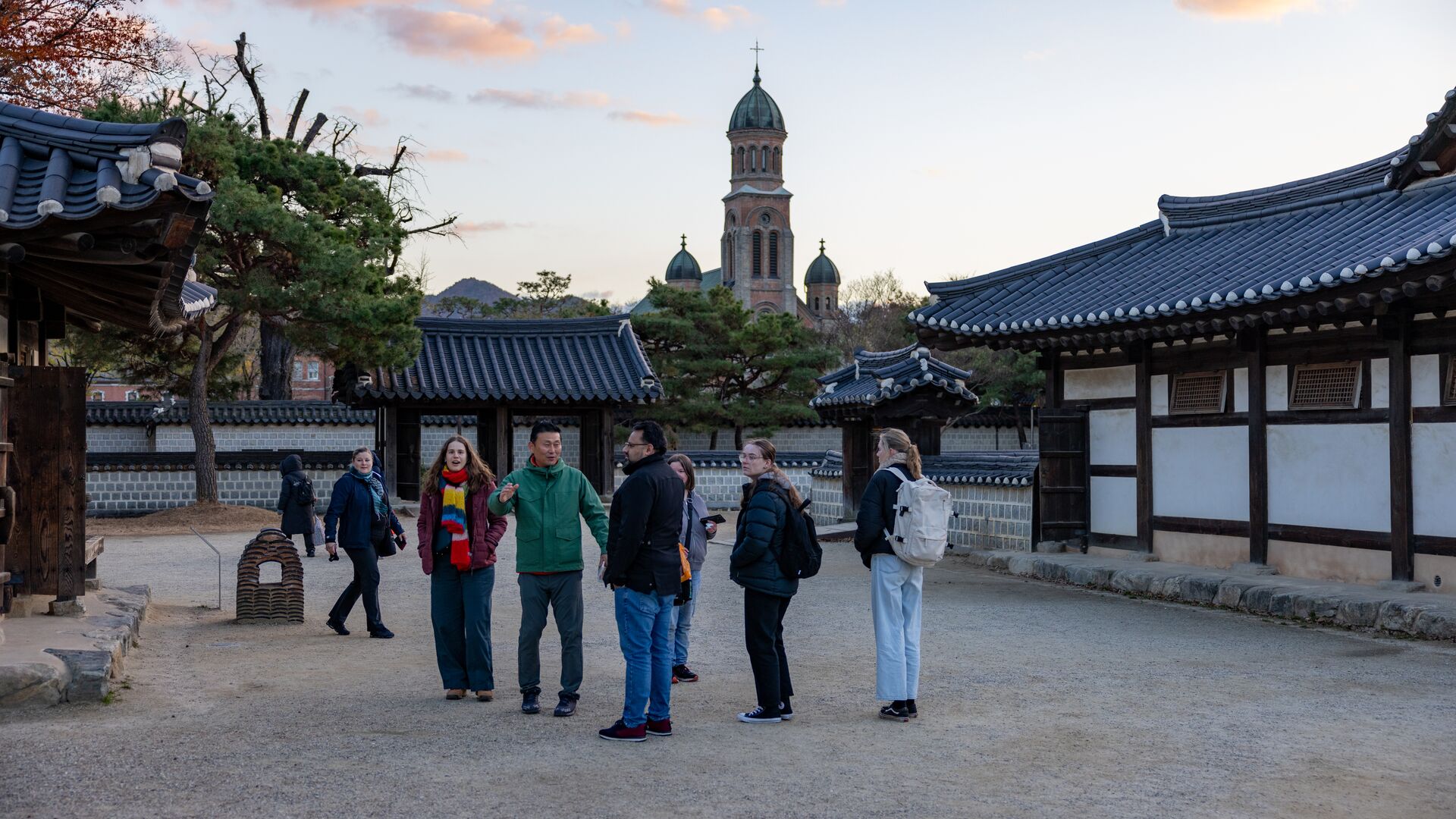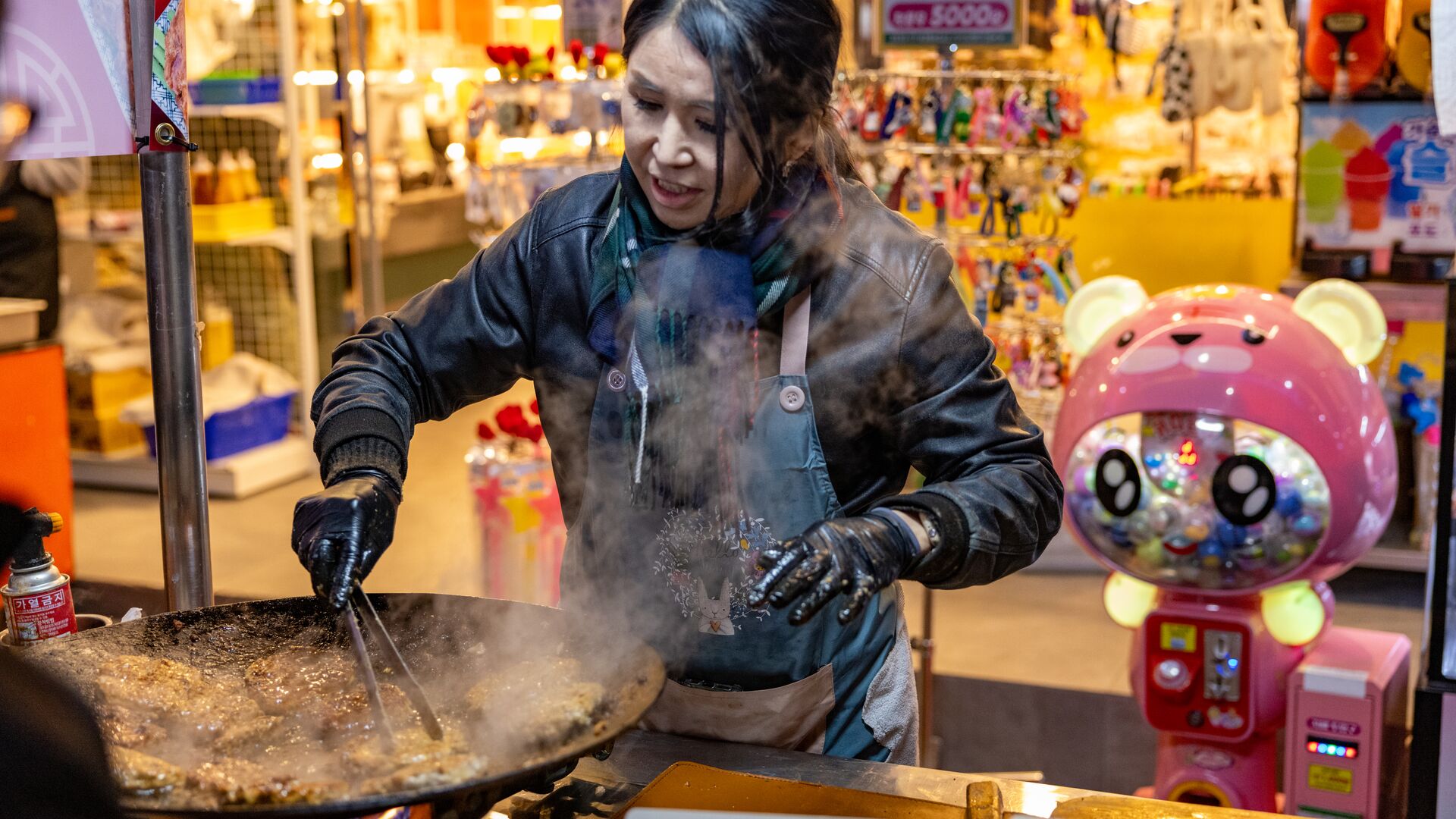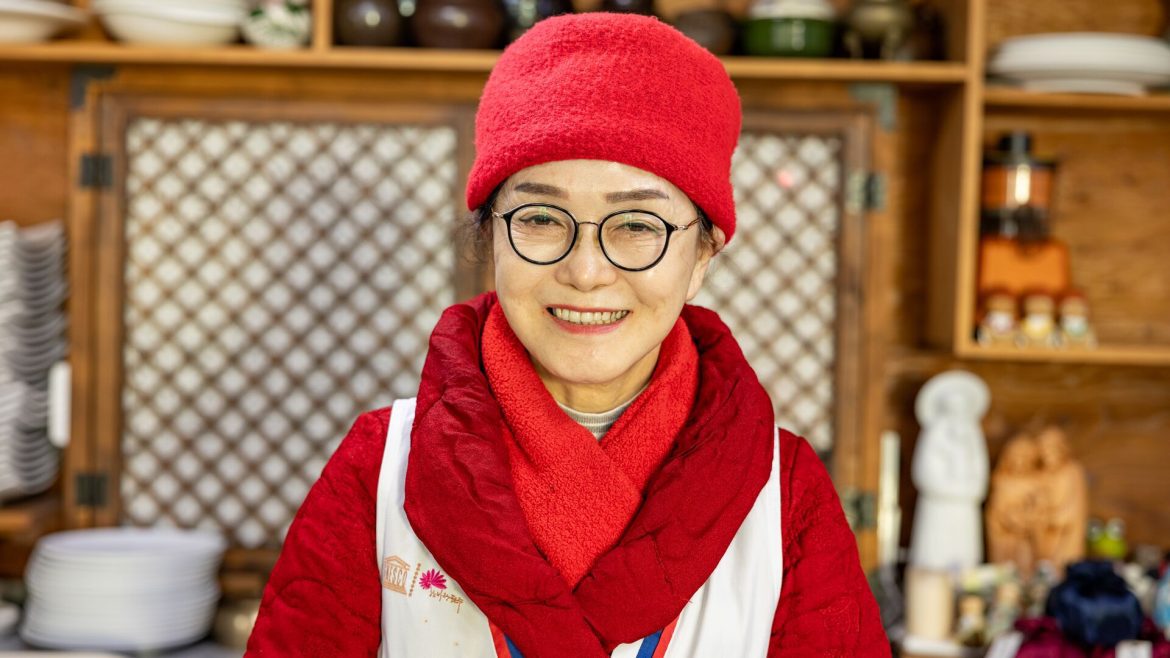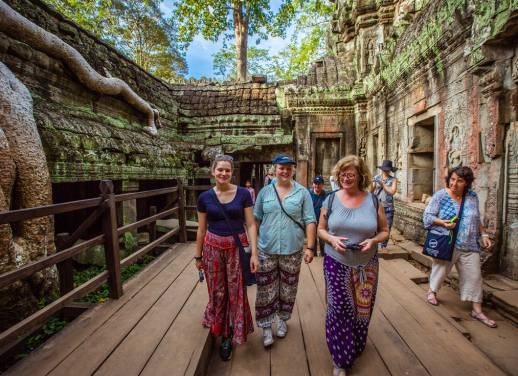About two hours south of Seoul, you’ll find a city full of charm with a harmonic blend of creativity, gastronomy, history and culture.
Native eateries will always be my favourite part of any new destination. Food is one of the ways we can connect to a culture by tasting and observing cooking techniques, traditional recipes and flavours that have been passed down from generation to generation. Tradition runs through Jeonju’s reputation as the ‘Taste City.’ That’s thanks in part to the abundance surrounding the city. This includes “rice cultivated on the Honam Plain, fish and salted fish from the Yellow Sea, fresh vegetables and wild greens from the mountains,” according to UNESCO, which named Jeonju a Creative City of Gastronomy in 2013.
The city might be most known for its Jeonju bibimbap – a one-dish melee of rice, meat and vegetables. You can find bibimbap all over South Korea, but in Jeonju, bibimbap has a unique and elevated flavour profile. The rice is cooked in a bone broth. You’ll have tastes of sesame oil and gochujang (red chili bean paste). Among the toppings are hwangpo muk (yellow mung bean jelly) and bean sprouts. Every October, the Jeonju Bibimbap Festival celebrates this iconic dish in one of the city’s most famous attractions – the traditional Hanok Village.

The village itself is a beautiful homage to culture and tradition amid a city keeping up with modernities and embracing change. The largest traditional village in Korea, Hanok Village is composed of roughly 700 hanok houses – traditional Korean-style homes. Visitors can tour some of the homes, stroll the narrow streets and even spend the night in one. As the custom goes, you arrange your futon floor mat and bedding for a nice slumber on the heated floors.
While celebrating tradition, Jeonju hasn’t lost sight of the role of innovation. Behind the bibimbap and hanoks, there’s a thriving innovation scene, fuelled by the city’s youth.
Palbok Art Factory is a testament to history meeting innovation. In the 1980s, the space was a cassette tape factory. Today it’s an art incubation hub with large-scale installations, educational classrooms for community engagement, a cafe and an on-site library with books for all ages. The old industrial buildings, connected by shipping containers and abstract structures, are a complex of exhibitions and art studios for up-and-coming artists.
In the main building, we learned about the history of the place through photo and audio exhibits. Alongside the outline of the building’s timeline, there was a display of assorted cassette tapes and photographs from its operative years, which was a great nod to the factory’s origins. It was a touching moment full of awe, inspiration and intrigue, seeing the bridge between the past and present connected through works of art.
Not far from Hanok Village, Nambu Market is the city’s oldest market at over 200 years old. Today, it’s full of artisans and vendors selling everything imaginable from fresh flowers and herbs to tapestries, furniture and gadgets. Of course, street food vendors are hawking local delicacies, too.

In 2017, the market was at risk of shutting down, but a new youth entrepreneurship program has breathed new life into its stalls. In once-abandoned shops on the market’s second storey, young business owners and shopkeepers take advantage of free rent to build their businesses, which today include a bakery, a smoothie cafe and an independent bookshop.
One of the most popular shops in the youth market is Bar Cold Dawn. The small space (which holds less than 20 people) can be likened to a speakeasy. You won’t find a menu during your visit – instead, every drink is crafted based on your personality and spirit preferences. Over the past seven years, the revitalised market has been drawing in younger residents and tourists, especially on Friday and Saturday nights during the Night Market.
No matter how you spend your time in Jeonju, you’ll feel the spirit of a creative city leaving you inspired and eager to explore more Asian culture.
Ronny travelled to Jeonju on Intrepid’s Essential South Korea, designed especially for travellers between 18 and 35.




